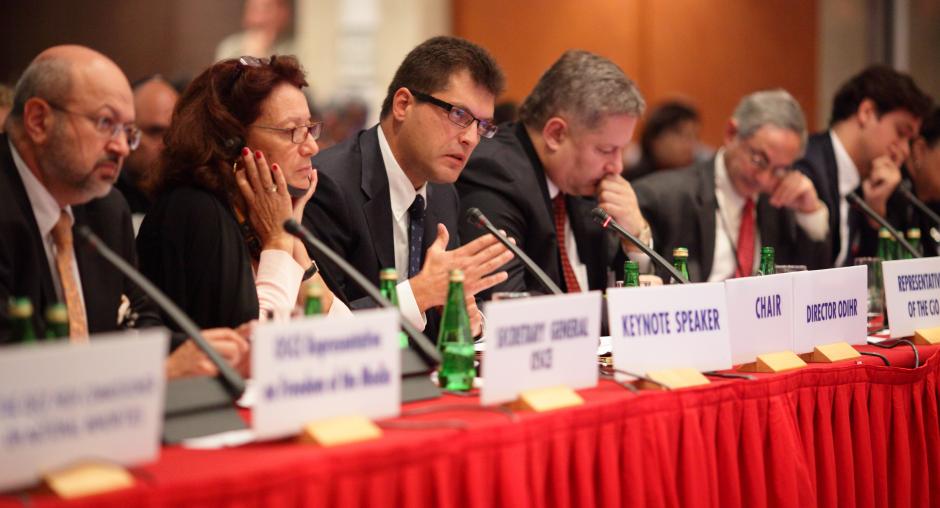North Africa events highlight link between democracy and security, say speakers at opening of OSCE human rights conference

WARSAW, 26 September 2011 – Events in North Africa featured prominently at the opening of this year’s OSCE human rights conference in Warsaw today, with speakers calling the uprisings in Egypt and Tunisia and other developments in the region a reminder of the importance of respecting human rights for ensuring stability and security.
Khadija Chérif, the Secretary General of International Federation for Human Rights and a prominent human rights defender from Tunisia, said the uprisings in the OSCE’s Mediterranean partner states took place in the name of "dignity, freedom and respect for human rights".
The recent developments were the natural consequence of the systematic suppression of human rights and the marginalization and harassment of civil society by authoritarian regimes, she added, saying that "forces of repression" are also at work in parts of the OSCE region proper. A strong civil society, not authoritarian rule, is the guarantor of stability and security, she stressed.
Ambassador Janez Lenarčič, the Director of the OSCE Office for Democratic Institutions and Human Rights (ODIHR), focused on the political will that is needed to address the human rights concerns persisting across the OSCE region: "There is no ideal society and there is no flawless democracy. But there is an ultimate goal, shared by all, and we need the political will to approach this goal with greater vigour and without looking for excuses that prevent us from doing it here and now."
Representing this year’s OSCE Chairmanship, Lithuanian Vice-Minister of Foreign Affairs Evaldas Ignatavičius said the importance of civil society for upholding human rights commitments cannot be over-emphasized. He added this was also the case with regard to the human rights situation in Belarus, which he said has been one of the major concerns of the Lithuanian chairmanship.
OSCE Secretary General Lamberto Zannier said the launch of democratic transition processes in some of the OSCE’s Mediterranean partner states is a "powerful reminder of the links between democracy, the rule of law, respect for human rights and fundamental freedoms, economic opportunity and long-term security and stability."
Some 1,000 government representatives and civil society activists from the OSCE’s 56 participating States are gathering in Warsaw for the two-week conference to review progress in implementing the commitments adopted by governments in the field of human rights and democracy.
The annual OSCE Human Dimension Implementation Meeting is Europe’s largest human rights conference.
